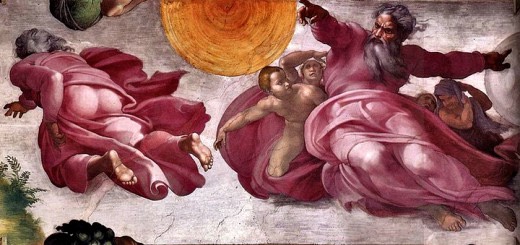“Oggi si è compiuta questa Scrittura che voi avete ascoltato” (Luca 4:16-30)
Biblical reflections by Mauro Leonardi*, priest and writer
Gesù in questo episodio ci dimostra che la via della santità non è necessariamente il martirio. In questa e in altre occasioni, Gesù sfugge ai propri nemici. La via della santità non è sempre il martirio. Invece il segno per riconoscere chi ha lo spirito sopra di sé, è sempre l’amore.
.
Dal Vangelo secondo Luca 4:16-30
Venne a Nàzaret, dove era cresciuto, e secondo il suo solito, di sabato, entrò nella sinagoga e si alzò a leggere. Gli fu dato il rotolo del profeta Isaìa; aprì il rotolo e trovò il passo dove era scritto:
«Lo Spirito del Signore è sopra di me;
per questo mi ha consacrato con l’unzione e mi ha mandato a portare ai poveri il lieto annuncio, a proclamare ai prigionieri la liberazione e ai ciechi la vista; a rimettere in libertà gli oppressi e proclamare l’anno di grazia del Signore».
Riavvolse il rotolo, lo riconsegnò all’inserviente e sedette. Nella sinagoga, gli occhi di tutti erano fissi su di lui. Allora cominciò a dire loro: «Oggi si è compiuta questa Scrittura che voi avete ascoltato».
Everyone bore witness to him and were amazed at the words of grace that came from his mouth and said: "Isn't this the son of Joseph?". But he replied to them: «You will certainly quote to me this proverb: “Physician, heal yourself. What we heard happened in Capernaum, do it here too, in your homeland!" Then he added: «Truly I say to you: no prophet is welcome in his own country. Indeed, truly I say to you, there were many widows in Israel in the time of Elijah, when the heavens were closed for three years and six months and there was a great famine throughout the land; but Elias was sent to none of them, except to a widow in Sarèpta di Sidon. There were many lepers in Israel in the time of the prophet Elisha; but none of them was purified except Naaman the Syrian."
When everyone in the synagogue heard these things, they were filled with indignation. They rose up and drove him out of the city and led him to the edge of the mountain, on which their city was built, to throw him down. But he, passing among them, set out.
.
* Mauro Leonardi (Como 1959) has been a priest since 29 May 1988 and has lived in Rome since then. He spends many hours of his day as a priest and prefers building bridges rather than raising walls. For years he has been writing stories, articles, essays and books that revolve around the relationship between man and God. Author of the blog Come Gesù. Abelis (Lindau) is his latest novel. The volunteers of the Gionata Project thank him for wanting to share these reflections on the Word with us.






